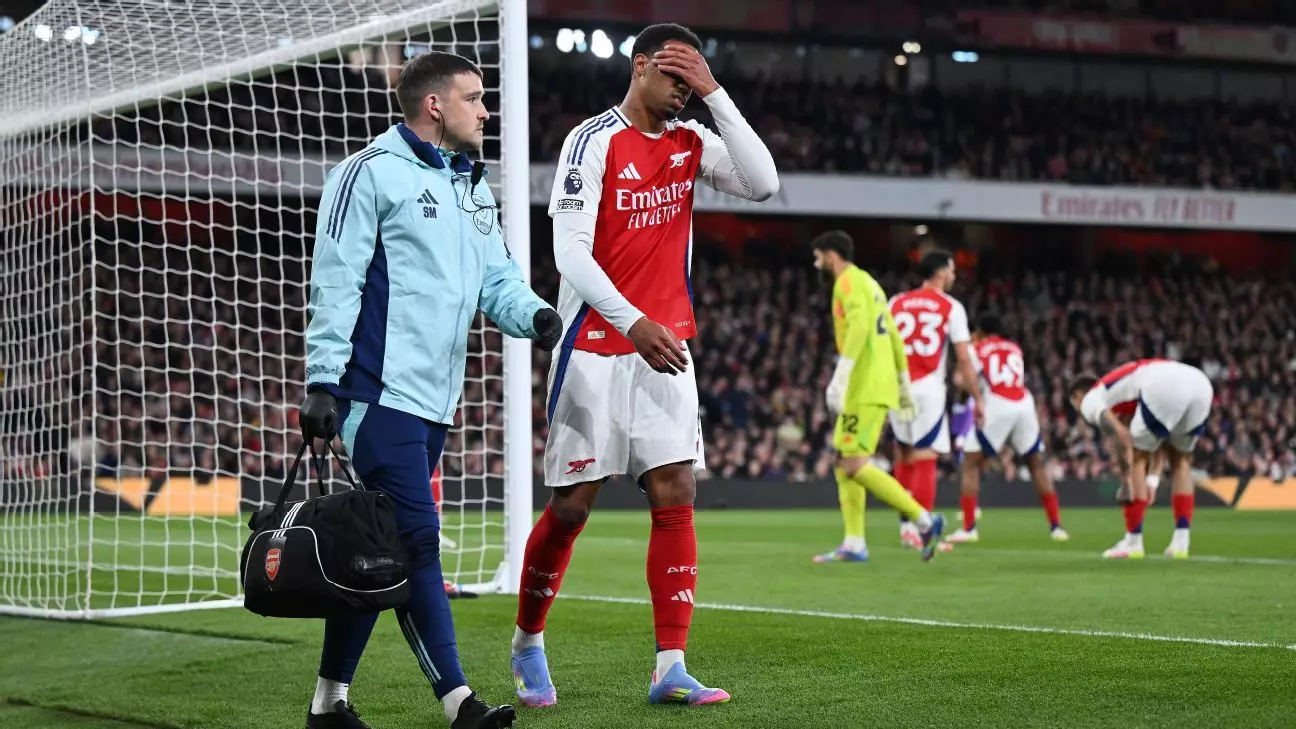The recent announcement regarding Gabriel Magalhães is hard to digest for Arsenal fans and the team alike. The 27-year-old defender’s impending surgery on a hamstring injury means that he will be sidelined for the rest of the season—a significant loss for the Gunners who have already faced a slew of injuries to key players. As the club’s defensive backbone, Gabriel’s presence was crucial, and his absence will undoubtedly have repercussions as Arsenal aims to solidify their position in both domestic and European competitions.
Context of Injuries at Arsenal
Injuries can be the bane of any football team, but for Arsenal, this season has been marked by an alarming trend of key players missing in action. From forwards like Kai Havertz and Gabriel Jesus to midfielders such as Martin Ødegaard and wingers like Bukayo Saka, the list of sidelined players reads like a who’s who of Arsenal talent. The situation suggests a systemic issue that may extend beyond mere bad luck—be it player fitness management or the physical demands of the game today. Fans are left questioning how a club with such ambition can be consistently hindered by injuries, particularly in a season where they appeared to be genuine title contenders.
Implications for Arsenal’s Season
With Gabriel ruled out, the pressure mounts for the remaining team members as they face Everton this coming Saturday before a crucial Champions League quarterfinal against Real Madrid. The stakes could not be higher, and the inconsistency created by injuries can drastically alter a team’s chemistry. The squad depth, while promising, is about to be tested even further. Manager Mikel Arteta has to navigate these challenges tactically, making swift adjustments to compensate for the loss of key players.
The Road Ahead: Support for Gabriel
Arsenal’s public commitment to support Gabriel through his surgery and recovery indicates a level of professionalism and care that should resonate positively within the club’s culture. It’s essential that both the coaching staff and the fans rally around him, fostering an environment conducive to recovery. The Gunners’ ability to rebound from setbacks is crucial, and the focus should not solely be on immediate performance; nurturing their players’ well-being is vital for long-term success.
A Call for Better Injury Management
The discussions surrounding injury management at Arsenal must become more pronounced. It’s not merely about recovering from injuries—it’s about minimizing them. The club is at a critical juncture where reflecting on training regimens, player fitness protocols, and recovery techniques should lead to actionable insights. Only with a proactive and holistic approach can Arsenal hope to maintain the health of their squad and avoid the pitfalls that come with losing multiple players to injury at pivotal moments in the season.
Arsenal fans deserve to watch their team at full strength—now is the time for collective resilience and unity as they navigate this challenging phase. In the face of adversity, the character of the team will emerge, fueling their aspirations for what lies ahead when players like Gabriel return to the pitch once more.

